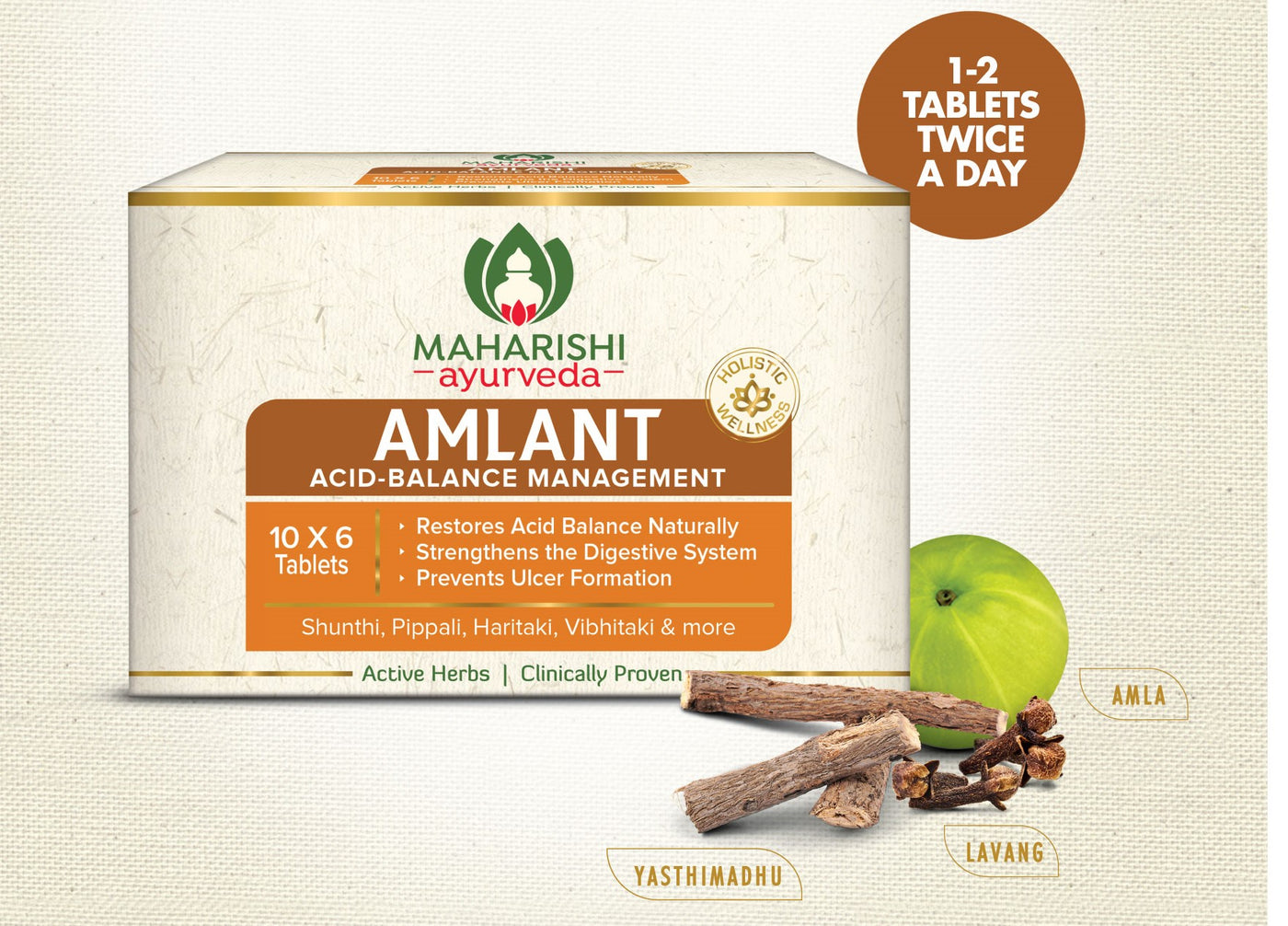All you need to know about common digestive problems and how to end them

Imagine yourself frequently waking amidst your sleep due to heartburn, indigestion, acid reflux and bloating. What a miserable situation to deal! Digestive problems have become widespread, and everyone has felt some discomfort in their day to day lives. Also, it has become a growing burden causing an unprecedented number of clinic visits and hospitalisations. Digestion involves several of the body's organs working together and allows the absorption of nutrients and other substances that you ingest. But, digestive difficulties make it challenging to discuss openly in the polite company which results in suffering the problem in silence. When it is compromised, the body's well being also suffers the consequences. We don't understand that a simple fix, like making informed lifestyle choices or taking natural remedies, could resolve our problem. That's why, whether the source is acute or chronic, it is good to understand the cause and symptoms to prevent or treat them.

All you need to know about common digestive problems and how to end them
Let us understand some of the common digestive problems and their symptoms
Chronic or acute hyperacidity
Hyperacidity is very common among people of all ages, all classes, and all community. It refers to a set of symptoms caused by an imbalance between the acid-secreting part of the stomach and the protective part that ensure their safety. The stomach secretes acid that is essential in the digestive process, but when it becomes excessive, the condition is known as hyperacidity.
Symptoms of hyperacidity
- Heartburn
- Sour belching
- Nausea
- Regurgitation of food
- Vomiting
- Gaseous distention of abdomen
- Heaviness in abdomen
- Indigestion and aversion towards food
- Abdominal and chest pain
- Headache and bad breath
- Foul-smelling loose motions and mouth ulcer
- Fatigue (especially in legs)
If a person is experiencing acid reflux symptoms frequently, then it can indicate that he/she may have GERD or gastroesophageal reflux disease.
Constipation
If your stool frequency has reduced to 3 times per week, it is hard, or if you feel the need to strain at stools when passing motion, you may have constipation. There can be many causes of constipation. The treatment for the majority of patients with chronic constipation involves changes in lifestyle, diet and fluid intake, and if necessary, medication. Non-intestinal diseases associated with constipation are thyroid hormone insufficiency, diabetes and Parkinson's disease. If you have chronic constipation, your doctor evaluates blood tests, stool tests, colonoscopy and measurement of anal muscle function. The treatment can be managed by modifying diet, lifestyle, increasing physical fitness and fluid intake, and taking natural foods like prunes that may help in passing motion.
Symptoms of Constipation
- Passing few stools in a week
- Having hard stools
- Straining during bowel movements
- Feeling there's a blockage in your rectum
- Feeling as though you can't empty the stool
- Needing help such as using your hands to press on your abdomen and using a finger to remove stool from your rectun
Gastroesophageal reflux disease(GERD)
Heartburn or hyperacidity is a burning sensation that rises from the abdomen and reaches the throat through the chest frequently. It occurs typically after overconsuming a large meal, food that increases acidity, or after laying down too quickly after eating. It is normal if hyperacidity occurs once in a while but, if you are taking an antacid every week, then t is a huge red flag. Most of the times, it results in gastroesophageal reflux disease (GERD). It is a condition where stomach acid comes up into the food pipe. GERD, when left untreated, can result in severe life-threatening illnesses like oesophageal cancer.
Symptoms of GERD
- Getting heartburn frequently
- Nausea
- A sour taste in the mouth
- Chronic dry cough that worsens at night
- Chest pain and regurgitation of digested food
Flatulence
An average human passes wind between 10 and 18 times a day and sometimes without anyone noticing. Flatulence is frequent among people, and it is the buildup of gas in the digestive system that can lead to abdominal discomfort. Healthy gas is harmless, but, excessive flatulence can cause distress and often occurs as a result of eating certain foods. Lifestyle changes and diet can help control excessive gas, but if ignored for a long time, it can lead to serious condition.
Symptoms of flatulence
Some health conditions like indigestion, constipation and irritable bowel syndrome (IBS) can cause flatulence symptoms.
Causes of common digestive problem
Unhealthy Lifestyle: When do you eat, what you eat and how do you eat can be the reasons for digestive disorders. A simple dietary and lifestyle changes can save your stomach and get digestion back to normal.
Having too much alcohol:In simple terms, alcohol can irritate your digestive system and produce gas. It provides more acid than usual, causing inflammation of the stomach lining.
Eating spicy foods: Spicy foods can aggravate ulcers in the sensitive stomach lining or even in the oesophagus, causing stomach pain, nausea, vomiting and weight loss.
Excessive smoking:Smoking causes you to swallow more air which can irritate your digestive system resulting in gas and bloating.
Extreme stress: Stress can lead to a decrease in blood flow and oxygen to the stomach, causing cramping, inflammation or imbalance of gut bacteria.
Long-term use of over-the-counter medications: Medicines taken from the mouth for a long time can affect the digestive system in many ways. It can lead to irritation of the oesophagus, which can result in digestive problems.
How to put an end to common digestive problems?
As per Ayurveda, individuals with imbalanced Pitta dosha are more prone to acidity and heartburn. Maharishi Ayurveda has conducted meticulous research and formulated100% ayurvedic remedy likeAmlant. It controls the digestive acid balance in the stomach and relieves the discomfort and pain induced due to acidity so that you can enjoy food, without any issues.
Amlant consists of Mishri and Vaidang that reduces burning, inflammation and cramps. Haritaki, Vibhitaki, Lawang, Pippi and Sarjika Kshor helps indigestion. Other ingredients like Sheetal Parpati, Amlaki and Mulethi work as cooling and relaxant. Nagar Mustaka acts as a diuretic.
Maharishi Amlant has the following benefits
- It restores the balance of stomach acid and digestion naturally.
- It heals existing issues related to ulcers and prevents the formation of new ones.
- It strengthens the digestive system and finds a cure that is free from adverse effects.
- It provides long term solution in treating common digestion problems.
Prevention is better than cure. So, protect your stomach with Amlant before it is too late.
Comments (2 Responses)
Jaswant
To know more about the effects, working for how long or continue with the medicine for life time.
Leave a comment (all fields required)
Comments will be approved before showing up.



02 April, 2020
Maharishi Ayurveda Vaidya
Hello Jaswant,
Thank you for your patronage. Keep following our page for more updates on our products and other information. We are always at your service, with the best, for your health and happiness.
Regards,
Team Maharishi Ayurveda